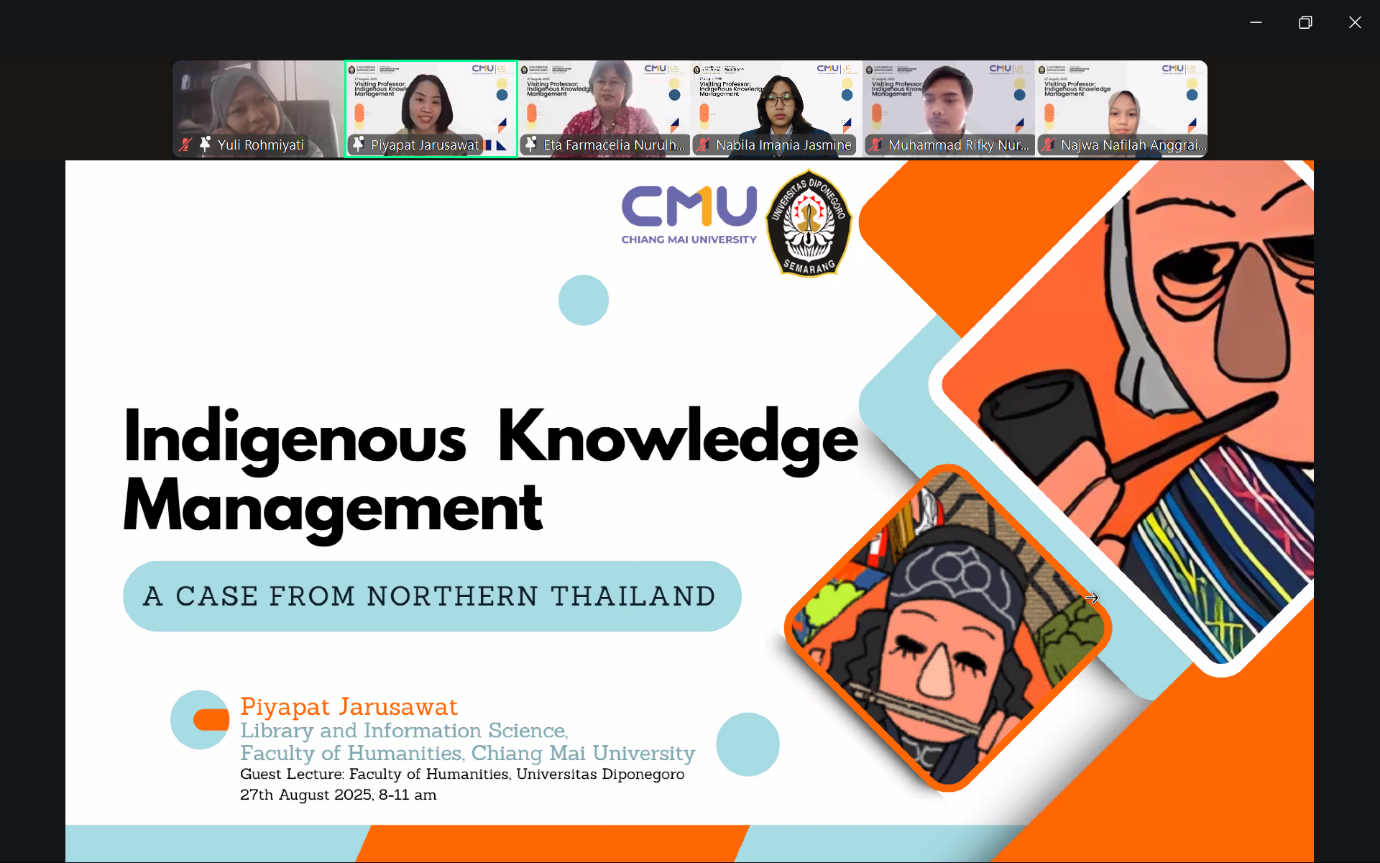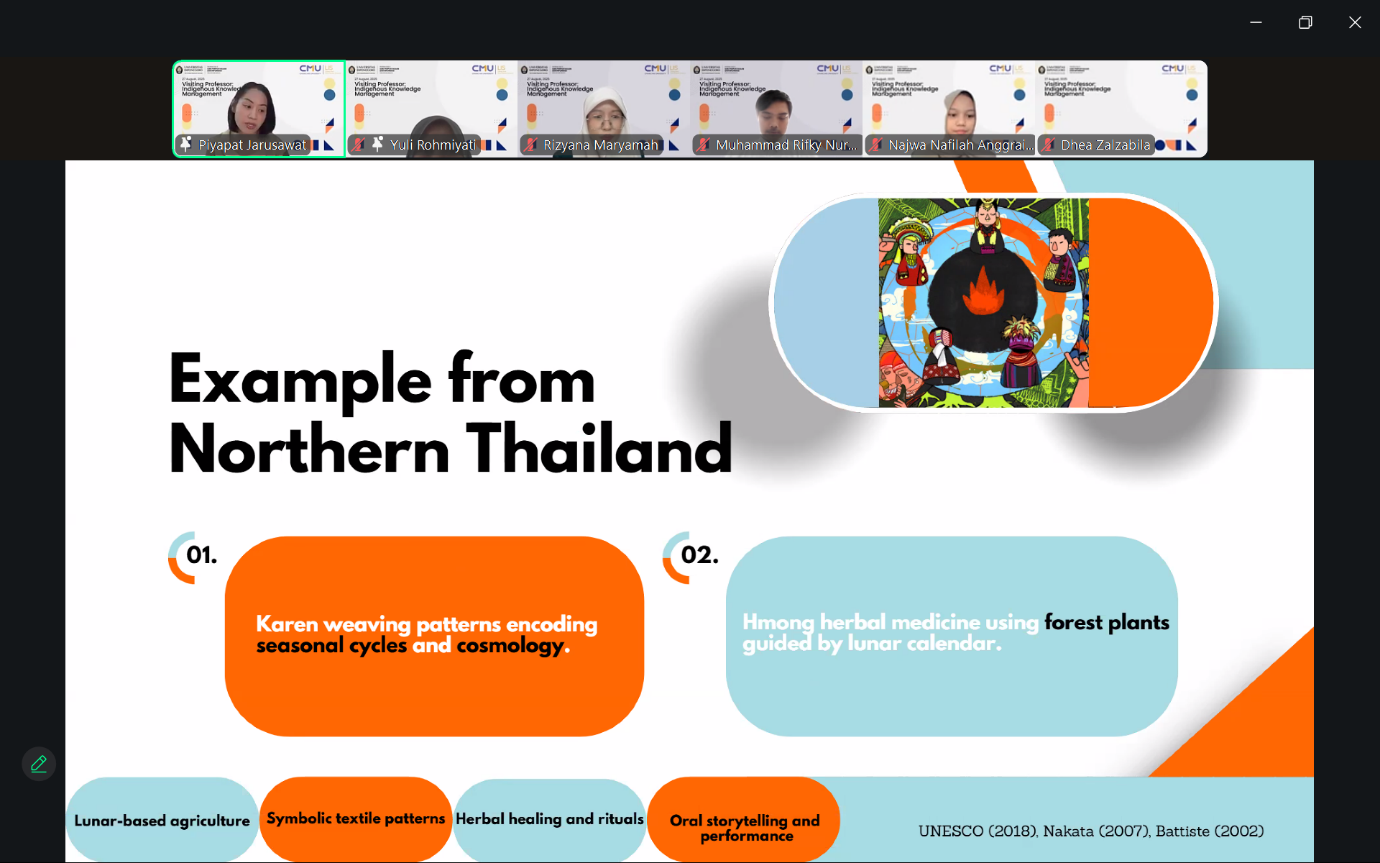Visiting Professor: Indigenous Knowledge Management – A Case from Northern Thailand
Semarang, August 27, 2025 – The Faculty of Humanities, Diponegoro University, in collaboration with Chiang Mai University, hosted a guest lecture titled “Indigenous Knowledge Management: A Case from Northern Thailand” delivered by Piyapat Jarusawat, PhD. The event took place on August 27, 2025, from 8 to 11 AM and attracted academics, students, and researchers interested in the preservation of Indigenous knowledge.

Jarusawat emphasized that Indigenous Knowledge (IK) is community-based, orally transmitted, and deeply rooted in cultural identity, spirituality, and daily practices. He highlighted examples from the Karen and Hmong communities in Northern Thailand, including traditional weaving patterns, herbal medicine guided by the lunar calendar, and ecological rituals that sustain the environment.

One compelling case study presented was the “Walking Classrooms” in Huay Ee Khang Village, where over 40 Karen children and youth learn directly from elders through community walks. Knowledge is transmitted through lived experience—intertwining cultural practices, ecological wisdom, and spiritual values—rather than in a formal classroom setting.

Another highlight was the “Umbilical Cord Forest”, a 64-hectare sacred forest where each newborn’s umbilical cord is placed on a fruit tree, symbolizing the inseparable bond between child, community, and nature. This ritual creates a lifelong connection and turns the forest into a living classroom.

The lecture also featured the Ban Laikaew community, where Karen women preserve the art of backstrap weaving. Knowledge about natural dyeing, weaving motifs, and innovative designs is passed down through generations, now strengthened by digital documentation and promotion via social media platforms.

The session concluded with the reminder that Indigenous Knowledge is not merely to be preserved, but to be lived and revitalized. By integrating technology, fostering intergenerational collaboration, and respecting ethical and cultural boundaries, Indigenous Knowledge can contribute meaningfully to global sustainability challenges.

